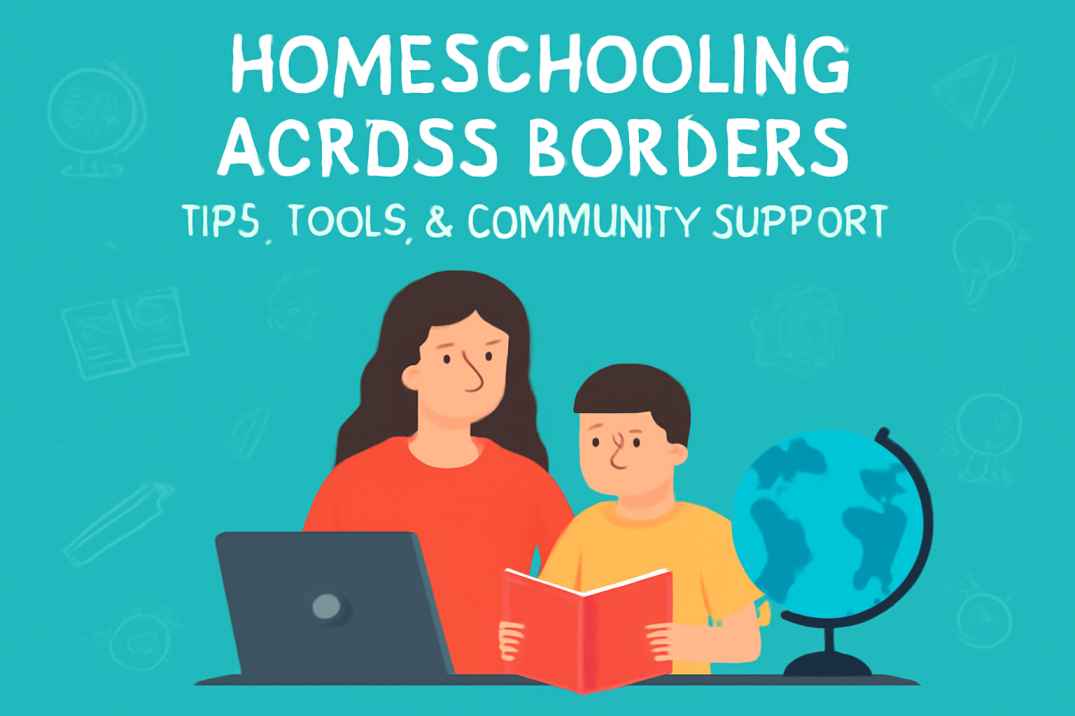
Homeschooling abroad can be a fantastic option for families who prefer to keep their children out of traditional schools. However, managing a homeschool curriculum in a foreign country presents unique challenges, from cultural differences to finding the right educational resources. This blog will provide essential tips, tools, and community support ideas for successful homeschooling while living abroad.
Benefits of Homeschooling Abroad
-
Flexibility in Education
-
Homeschooling allows families to customize their children’s learning experience to fit their schedule, lifestyle, and educational philosophy.
-
Parents can integrate cultural experiences into the curriculum by teaching about local history, geography, and customs.
-
-
Personalized Learning
-
Homeschooling offers one-on-one attention, enabling children to learn at their own pace without the distractions or limitations of traditional classroom settings.
-
It allows for a deeper dive into subjects of interest and provides the freedom to explore new subjects not always covered in a typical school environment.
-
-
Freedom to Travel and Explore
-
Families can take educational trips, visit historical sites, and explore new environments while maintaining their homeschooling schedule.
-
Challenges of Homeschooling Abroad
-
Cultural and Language Barriers
-
Navigating a new educational system in a different language can be a challenge, especially when trying to teach subjects that require specialized vocabulary.
-
Adapting to local education expectations may be difficult for both parents and children.
-
-
Finding Reliable Educational Resources
-
Not all countries have access to the same educational tools or curriculum options. It can be challenging to find appropriate textbooks, online courses, and teaching materials that match your needs.
-
-
Isolation and Lack of Social Interaction
-
Homeschooling can sometimes lead to feelings of isolation for both parents and children, as there are fewer opportunities for children to interact with peers.
-
Tips for Successful Homeschooling Abroad
-
Research Your Options Thoroughly
-
Look into international homeschooling programs, online courses, and curriculums that can be used across borders. Programs like K12 International and the British or American curriculum are popular choices for expats.
-
-
Create a Routine
-
Set up a daily schedule to provide structure and consistency, ensuring that your child stays on track with their education.
-
Include time for learning, physical activity, socialization, and exploration of the local culture.
-
-
Incorporate Local Culture and History into the Curriculum
-
Take advantage of your surroundings to teach your child about the local culture, history, language, and traditions. Plan field trips to local museums, landmarks, and historical sites to enhance learning.
-
-
Use Technology to Your Advantage
-
Use digital tools and platforms for lessons, assignments, and collaborative projects. Websites like Khan Academy, Coursera, and various language-learning apps can help provide a rich learning experience.
-
-
Join Homeschooling Communities
-
Find online or local expat homeschooling groups for support and advice. These communities often share resources, organize social events, and provide a sense of connection.
-
Conclusion
Homeschooling abroad offers numerous opportunities for a personalized, flexible, and enriched education experience for your child. With the right tools, planning, and support, you can successfully navigate the challenges of homeschooling in a foreign country while making the most of your family’s international adventure.


